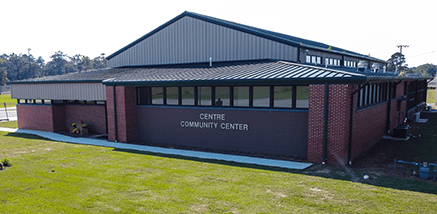
(NEW YORK) — Over $1.4 billion has been awarded to clinical trials for COVID-19 vaccines, the development of a new monoclonal antibody, and new vaccines and therapeutic technologies, the Department of Health and Human Services (HHS) announced.
The awards were the first set of allocations provided via the administration’s “Project NextGen” — a $5 billion investment announced earlier this year.
“This is an investment in expanding our country’s ability to respond to the future variants that we might see coming out of COVID, it’s an investment in better protecting all of our community, including those who are immunocompromised, and who don’t respond well to the existing vaccines,” said Xavier Becerra, the secretary of Health and Human Services.
The “NextGen” initiative was set to develop future technologies to protect against COVID-19, such as mucosal vaccines delivered through the nose, vaccines that provide broad protection against future variants, as well as different coronavirus, more durable monoclonal antibodies, and technologies to strengthen production of vaccines and therapeutics, according to a HHS press release.
The investments are still vital despite much of the attention on the pandemic fading away, experts say.
“Just because something is no longer a public health emergency doesn’t mean that they’re still not important problems to solve, improvements to make. And when it comes to our medical countermeasures for COVID-19, there’s continued need to make them better,” Dr.
Amesh Adalja, an infectious disease specialist at the Johns Hopkins University Center for Health Security, told ABC News.
“Why do we need new cancer therapies? There’s not a public health emergency declaration for cancer. It’s not as if progress in the field stops when there’s not a public health emergency,” he added.
Vaccine uptake of last year’s bivalent booster was much lower than previous shots, with only 20.5% of adults receiving a dose, according to the Centers for Disease Control and Prevention.
While seemingly low, the important thing is that high-risk individuals were adequately protected, experts say.
“I’m not somebody who thought that the bivalent shot uptake should have been 100%. I think what we wanted was the bivalent shot to have 100% uptake amongst high-risk groups and we probably had about 50% of high-risk groups getting vaccinated,” Adalja said.
Newer COVID vaccine boosters are expected to be available in mid-to-late September and target an omicron subvariant known as XBB.1.5, according to the Food and Drug Administration.
It remains unclear who the CDC will recommend the shot for. Most people may not require an additional booster at this point unless they are at high risk of severe disease, including elderly adults or those who are immunocompromised, some experts say.
“I think by saying everybody needs to get it, people don’t sense that they’re at risk…I think we need to make a case for exactly who needs to be vaccinated again, and why,” Dr. Paul Offit, professor of pediatrics at Children’s Hospital Philadelphia told ABC News.
Health officials have previously suggested that vaccine boosters may become an annual occurrence, similar to the yearly flu shot.
“On the COVID vaccine front, we will now likely have one vaccine shot that’s going to be recommended every year,” Dr. Joseph Kanter, the State Health Officer with the Louisiana Department of Health, told ABC News during a press conference on Aug. 9.
Some experts disagree with a yearly COVID vaccine schedule.
“This notion of a yearly vaccine never made a lot of sense to me. Because by the time you make these booster doses, the virus that you’ve made it for is gone. I believe that happened last year in June of 2022.” Offit said.
“There may be some individuals where more frequent boosting is necessary. So, someone who had a stem cell transplant or someone who had a solid organ transplant, or someone who’s severely immunocompromised, they may need boosting once a year. But a healthy person probably not because the vaccines are really protecting against severe disease and they don’t really have a risk for severe disease,” Adalja said.
The promise with these continued investments, is that newer vaccines may help more broadly protect against newer and upcoming variants, officials say.
“Next Gen is to help us get ahead of this and be able to prepare ourselves for what might be around the corner. And that’s why today’s announcement is so important,” Becerra said.
The investments into the clinical trials will most likely start as early as this winter and work to develop vaccines that target longer lasting protection against future variants, according to the HHS press release.
Meanwhile, the development of a monoclonal antibody will protect people who do not respond to or cannot take existing vaccines, the press release added. Remaining funds will help develop technologies to enable more efficient manufacturing of vaccines and therapeutics.
Copyright © 2023, ABC Audio. All rights reserved.




